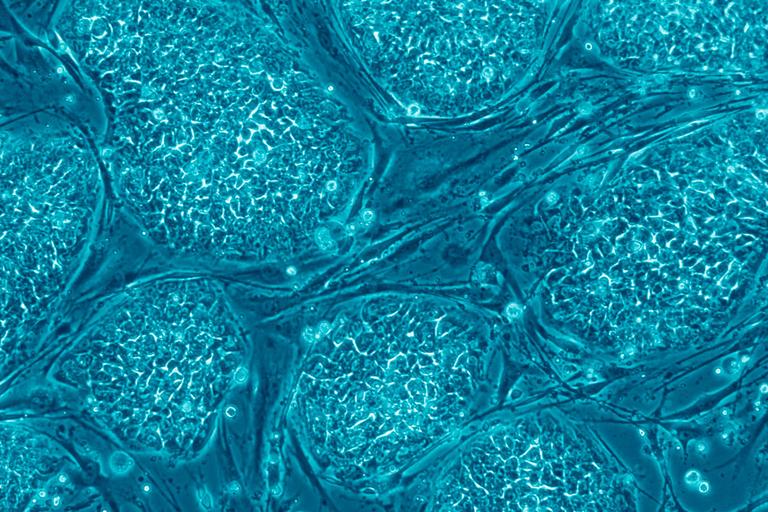Advertisement
Mass. Stem Cell Researchers Assessing New Landscape
Resume
Stem cell researchers in Massachusetts have had a full day now to absorb the impact of a federal ruling Monday that stops most federal funding of human embryonic stem cell research.
But many Boston scientists are still unsure how that affects their laboratories. Some know that their funds — and thus, their work — will be frozen. Others can continue their work as usual thanks to generous private funds. WBUR health and science reporter Sacha Pfeiffer joined Morning Edition to explain.
Deborah Becker: Sacha, do we know any more about how this U.S. District Court decision changes the stem cell landscape in Massachusetts?
Sacha Pfeiffer: This ruling is still kind of a legal mess. Parts of it can be interpreted in different ways, so lawyers from the U.S. Justice Department are sorting out exactly what it means.
Leonard Zon, who heads the stem cell program at Children's Hospital in Boston, says he's still waiting for legal clarification. "We're kind of in a little bit of a waiting pattern trying to understand what the rules mean and how we will implement our own funding in the laboratory to do our research," Zon said.
Is there anything stem cell researchers are doing differently for now?
On Monday, the National Institutes of Health said researchers who have already received NIH money this year can keep doing their work — but no new money will be given out. That means 22 projects nationwide due to get money in September will be stopped in their tracks.
Starting Tuesday morning, some of researchers immediately switched to using private money for their research rather than federal funding. That way, they don't risk getting in legal trouble later.
Is it that easy? They just start drawing money from a different bank account?
This was the really striking part of the conversations I had with several Boston stem cell researchers. They say that, at least for the time being, it's mostly business as usual in their labs. That's because many of them have huge amounts of money from private foundations, from pharmaceutical companies and from wealthy individuals. That will allow researchers like Dr. Zon to continue their work.
"We at Children's Hospital at Boston have been very fortunate to have sizeable private funding and donations that have allowed us to do embryonic stem cell research," Zon said.
Konrad Hochedlinger, a researcher at the Harvard Stem Cell Institute, says he's not getting left out in the cold, either.
"I'm in the fortunate position that I have some private funding available that would allow me to continue research on these lines," Hochedlinger said.
Notice that same language — "fortunate position," "very fortunate." These are elite medical institutions that have the great luxury of attracting lots of private money for their research.
I assume it's a different story for research centers that don't have the same private fundraising prowess?
Right. Some stem cell researchers elsewhere rely heavily on federal funding and can't just dip into a big pot of private money.
What's the breakdown between public and private money for stem cell researchers in Massachusetts?
Well, Children's Hospital has raised about $26 million for its stem cell work over the years. The Harvard Stem Cell Institute has raised about $90 million.
It's not clear exactly how much public money is earmarked for stem cell research, but Massachusetts got almost $3 billion for medical research overall. That's the most federal money per capita for medical research in the U.S. — and in pure numbers it's second only to California.
That money gets divvied up to fund thousands of federal grants.
So even if Massachusetts researchers have lots of private money available to them for stem cell research, they still rely quite a bit on federal funding, too.
Definitely. By no means is the state's stem cell community suggesting it isn't very dependent on federal funding, and that losing federal funding wouldn't really slow stem cell progress in the state. But if that federal money doesn't come back, private donations are going to be more important than ever.
This program aired on August 25, 2010.
